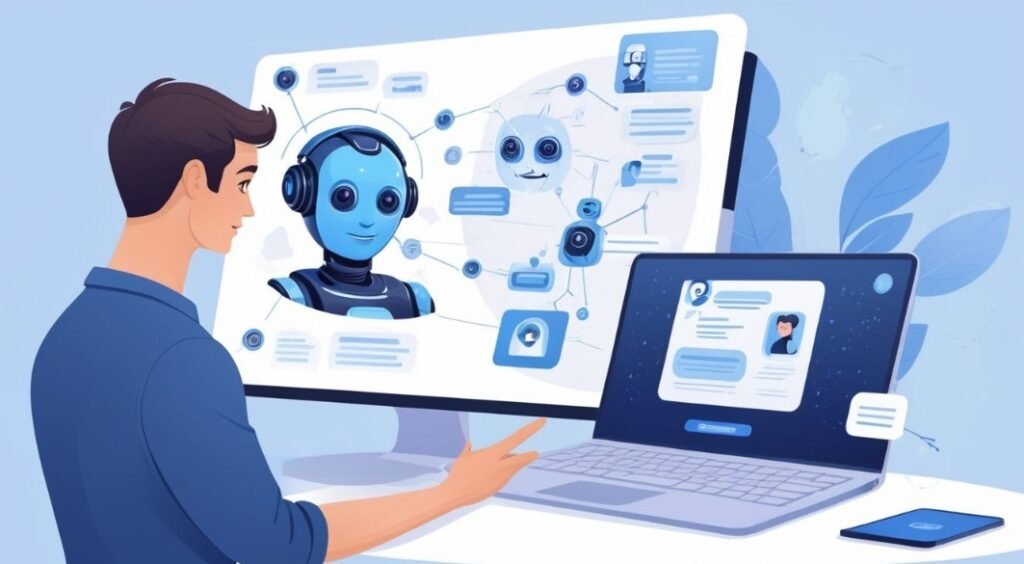Artificial Intelligence (AI) has quickly undress AI tools become one of the most influential technologies of our time. From voice assistants and predictive analytics to self-driving cars and advanced robotics, AI is shaping industries, transforming businesses, and redefining the way people live and work. But when we talk about the “best AI,” it is not just about a single tool or platform—it is about how AI technologies combine innovation, efficiency, and adaptability to deliver real value.
Understanding What Makes AI the Best
The term “best AI” can mean different things depending on the context. For businesses, the best AI may be one that drives growth and automates complex tasks. For individuals, it might be a virtual assistant that simplifies daily routines. And for researchers, the best AI could be one that advances human knowledge in healthcare, climate science, or space exploration.
Key characteristics of the best AI systems include:
-
Accuracy: The ability to make precise predictions or decisions.
-
Scalability: The capacity to handle large amounts of data and complex tasks.
-
Adaptability: Learning and improving over time through machine learning.
-
User-friendliness: Offering intuitive interfaces that make AI accessible.
Examples of the Best AI Applications
1. Chatbots and Virtual Assistants
AI-powered assistants such as ChatGPT, Siri, Alexa, and Google Assistant have become part of daily life. They help users set reminders, answer questions, play music, and even control smart homes. These tools represent some of the best AI in terms of convenience and user adoption.
2. Healthcare AI
In healthcare, AI is revolutionizing diagnostics, drug discovery, and personalized treatment. For example, AI algorithms can analyze medical images to detect diseases earlier than human doctors. AI tools are also being used to predict patient outcomes, making healthcare more efficient and accessible.
3. Business Intelligence and Automation
Companies rely on AI for customer insights, fraud detection, and process automation. Tools like IBM Watson and Salesforce Einstein provide deep data analysis that helps organizations make smarter decisions. AI-driven chatbots in customer service also improve user experience while reducing costs.
4. Self-Driving Technology
Autonomous vehicles developed by Tesla, Waymo, and other companies use AI to process real-time data from sensors, cameras, and GPS. This technology has the potential to reduce accidents, improve traffic flow, and reshape transportation.
5. Content Creation and Creativity
AI is no longer limited to numbers and data; it is also creative. Tools such as AI art generators, music composition software, and writing assistants show how AI can support human creativity. These innovations make it possible for businesses and individuals to produce professional-quality content more efficiently.
The Best AI Tools Today
Some of the most recognized and widely used AI tools include:
-
ChatGPT by OpenAI: Known for natural language processing and content generation.
-
Google DeepMind: Famous for solving complex problems, including protein folding research.
-
IBM Watson: A leader in AI for business insights and healthcare applications.
-
TensorFlow and PyTorch: Popular frameworks for developers building custom AI solutions.
Each of these platforms represents a different aspect of what makes AI powerful: accessibility, research, commercial use, and scalability.
Benefits of the Best AI
The widespread adoption of AI offers numerous benefits:
-
Efficiency: Automating repetitive tasks saves time and resources.
-
Innovation: Unlocks new possibilities in industries from finance to education.
-
Accessibility: Provides tools that make advanced technology usable for everyday people.
-
Cost-effectiveness: Reduces operational costs for businesses.
-
Decision-making: Improves accuracy in predictions and strategic planning.
Challenges and Ethical Considerations
Even the best AI comes with challenges. Data privacy, job displacement, algorithmic bias, and security risks are ongoing concerns. As AI continues to evolve, ethical guidelines and regulations must ensure that the technology benefits society without causing harm. Responsible development and transparent use of AI are crucial to maintaining public trust.
The Future of the Best AI
Looking ahead, the best AI will likely combine human-like reasoning with advanced automation. It will continue to personalize experiences, drive innovation, and solve global challenges such as climate change and pandemics. Quantum computing may also take AI capabilities to the next level, making it even more powerful.
Conclusion
The “best AI” is not a single tool but a combination of technologies that push the boundaries of what is possible. From healthcare breakthroughs and business automation to personal assistants and creative tools, AI is enhancing every aspect of modern life. As it continues to evolve, the best AI will be defined by its ability to create positive change while addressing ethical challenges responsibly.

